
Browse our fun-packed, helpful plant-based articles, and delve deeper into this healthy, sustainable lifestyle!


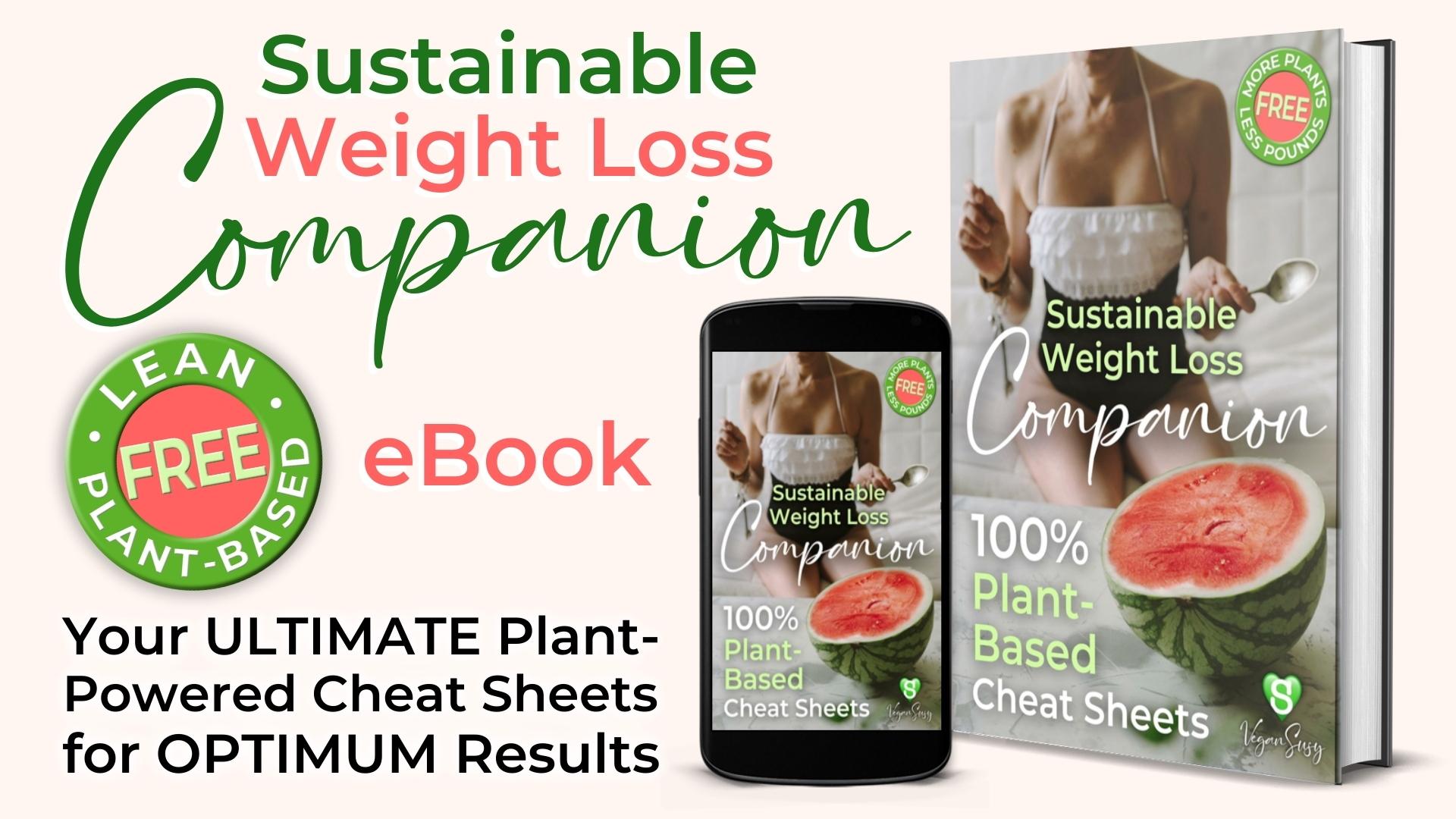
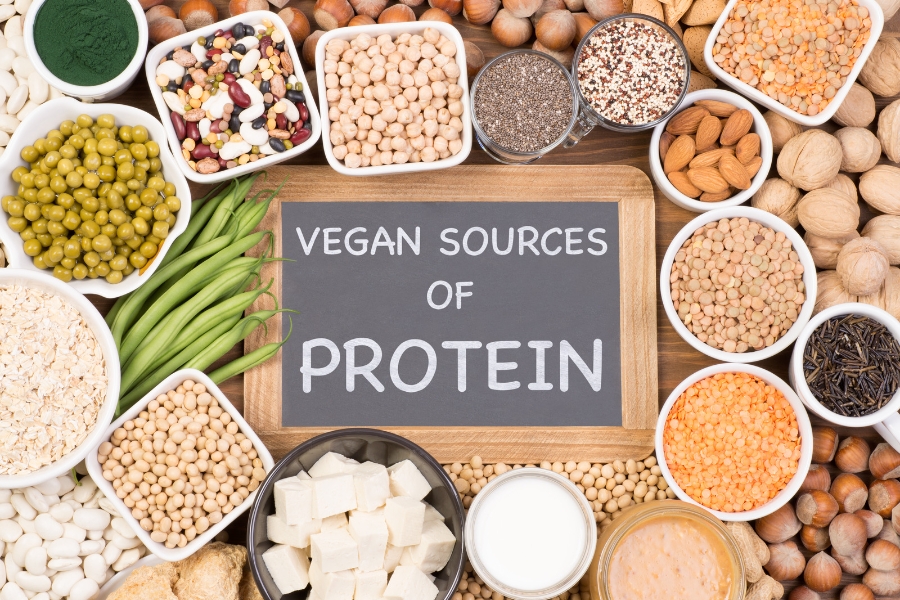
Top 15 Plant-Based Protein Sources for a Vegan Diet
Strength Training For Fat Loss For Women
Author: Plant-Based Susy
Expert Advice From a Plant-Based Nutrition Specialist
As a holistic weight loss coach, fitness instructor and qualified plant-based nutrition professional, I frequently receive inquiries about plant-based / vegan protein sources.
Protein is a crucial nutrient that plays a vital role in the structure and function and maintenance of our bodies.
Quite naturally, we need to make sure we're getting enough of this essential macro-nutrient, on a regular basis.

Table of Contents:
How to Get Enough Protein on a Vegan Diet
Contrary to popular belief, you don't need to consume animal products or rely on plant-based protein powder to meet your protein requirements on a vegan diet.
While bodybuilders may choose to supplement their diets with protein powder, it is not necessary for most individuals.
In fact, research indicates that switching to a whole-food vegan diet can provide bodybuilders and elite athletes with an advantage over their omnivorous counterparts.
There are numerous plant-based protein sources readily available to help fulfil your protein needs. By incorporating these sources into your diet, you can easily meet your protein requirements and enjoy the health benefits of a vegan lifestyle.
Additionally, don't be afraid to experiment and get creative in the kitchen – there are countless delicious ways to include plant-based protein in your meals.

The Building Blocks of Life
Protein, composed of amino acids, is an essential nutrient that plays a critical role in our bodies structure and function. Our bodies require 20 different amino acids, which can be categorised as either essential or non-essential.
Essential amino acids cannot be produced by our bodies and must be obtained from our diet, while non-essential amino acids can be either produced by our bodies or derived from the metabolism of essential amino acids.
Essential Amino Acids
The 9 essential amino acids are histidine, isoleucine, leucine, lysine, methionine, phenylalanine, threonine, tryptophan, and valine.
Protein serves various important functions, including tissue building and repair, enzyme and hormone production, and molecular transportation throughout the body.
It also aids in maintaining a healthy body weight and can contribute to weight loss by increasing feelings of fullness and reducing appetite or carbohydrate cravings.
Top 15 Plant-Based Protein Sources
Here are the Top 15 plant-based protein sources you should incorporate into your vegan diet for optimum health:
1. Legumes:
Beans (kidney beans, black beans, chickpeas), lentils, peas, and peanuts are excellent sources of protein, fibre, iron, and zinc. Add them to soups, stews, salads, and grain bowls.
2. Nuts and Seeds:
Almonds, cashews, chia seeds, flax seeds, and pumpkin seeds are rich in protein, healthy fats, vitamins, and minerals. Enjoy a handful of nuts or sprinkle seeds on meals and snacks for a protein boost.

3. Tofu:
Made from soybeans, tofu is a versatile protein source containing iron and calcium. Grill it, fry it, or add it to soups and stews.
4. Tempeh:
Fermented soybeans provide tempeh, which has a nutty flavour and is a good source of protein, iron, and calcium. Slice and grill it or include it in stir-fries and grain bowls.
5. Grains:
Wheat, quinoa, oats, barley, rye, buckwheat, corn, and rice are protein-rich grains. Quinoa is a complete protein containing all nine essential amino acids. Use grains as a base for grain bowls or as a side dish.

6. Seitan:
Also known as wheat gluten, seitan has a chewy, meat-like texture and is high in protein and iron. It serves as a meat alternative in stir-fries and sandwiches.
7. Quinoa:
This grain is rich in protein, fibre, iron, magnesium, and all nine essential amino acids.
8. Oats:
High in protein, fibre, iron, and magnesium, oats can be used to make oatmeal for breakfast or incorporated into baked goods like cookies and bars.

9. Spirulina:
This blue-green algae is a protein powerhouse, along with iron, B vitamins, and all nine essential amino acids. Add spirulina powder to smoothies, oatmeal, and other dishes.
10. Nutritional Yeast:
With its nutty, cheese-like flavour, nutritional yeast is a protein-rich deactivated yeast. It is packed with B vitamins and zinc and can be sprinkled over pasta dishes, grain bowls, or roasted vegetables.

11. Hemp Seeds:
These seeds provide protein, omega-3 fatty acids, iron, and magnesium. Add them to smoothies, oatmeal, and yoghurt.
12. Sprouted Grains:
These grains are an excellent source of protein, fibre, vitamins, and minerals. Use sprouted grains instead of regular grains in recipes like bread, tortillas, and crackers.

13. Protein Powders:
Plant-based protein powders such as soy protein, pea protein, rice protein, and hemp protein offer a convenient way to increase protein intake. Choose brands made with whole food ingredients and no added sugars or artificial additives.
14. Mushrooms:
Mushrooms are a protein source rich in B vitamins, selenium, and potassium. Add them to soups, stews, pasta dishes, and stir-fries.

15. Green Vegetables:
While not as high in protein as other sources, green vegetables like broccoli, kale, and spinach still provide protein along with fibre, vitamins, and minerals. Include them in soups, stews, salads, and smoothies.
Protein Variety: The Spice of Life
By incorporating a variety of these plant-based protein sources into your diet, you can easily meet your protein needs on a vegan diet. Remember, it's important to strike a balance and obtain all essential amino acids. Mix and match different plant-based protein sources to ensure your body receives the necessary nutrients.
So, the next time you wonder about getting enough protein on a vegan diet, remember the abundance of delicious and nutritious plant-based protein sources available. Whether you're a seasoned vegan or just starting out, these protein-rich foods will help you maintain a healthy, energised, and satisfied lifestyle.
Now, armed with this knowledge, put it into action by incorporating these plant-based protein sources into your meals and snacks. You'll discover how easy and flavourful it is to meet your protein needs on a vegan diet.
Better For Your Body And Our Planet Too
Adopting a vegan diet brings benefits not only to your personal health but also to the overall health of our planet. By choosing plant-based protein sources, you contribute to reducing pollution, conserving water, and protecting the environment.
Additionally, a plant-based diet positively impacts animal welfare by reducing the demand for animal products and minimising the suffering of farmed animals.
Embracing plant-based eating can also help address the biodiversity crisis by freeing up land for wildlife.
By prioritising your health and supporting a sustainable and humane option like plant-based protein sources, you can achieve a win-win situation.
With an array of delicious and diverse options available, there has never been a better time to embrace a vegan diet.
Give these plant-based protein sources a try, and both your body and our planet will thank you for it.
Frequently asked questions
What are the best plant-based protein a for vegans?
Some of the best plant-based protein sources include lentils, chickpeas, quinoa, tofu, tempeh, black beans, edamame, and hemp seeds.
How can vegans ensure they get enough protein in their diet?
Vegans can meet their protein needs by eating a variety of plant-based foods, such as legumes, whole grains, nuts, seeds, and protein-rich vegetables like broccoli.
Do plant-based proteins provide all essential amino acids?
While some plant-based proteins are incomplete, combining foods like beans and rice or eating quinoa, soy, or hemp provides all essential amino acids.
Are plant-based proteins as effective as animal proteins for muscle building?
Yes, plant-based proteins like soy, lentils, and pea protein can support muscle building when consumed in sufficient amounts and paired with strength training.
What are easy ways to add more plant-based protein to meals?
Add tofu or tempeh to stir-fries, sprinkle chia or hemp seeds on smoothies, use lentils in soups, or replace rice with quinoa for a protein boost.
💚 "Happy Plant-Based Eating & Exercising!" 💚

Plant-Based Susy
Plant-Based Nutrition Professional & Weight Loss Coach
Empower Yourself: Embark on a Delicious Fat Loss Adventure

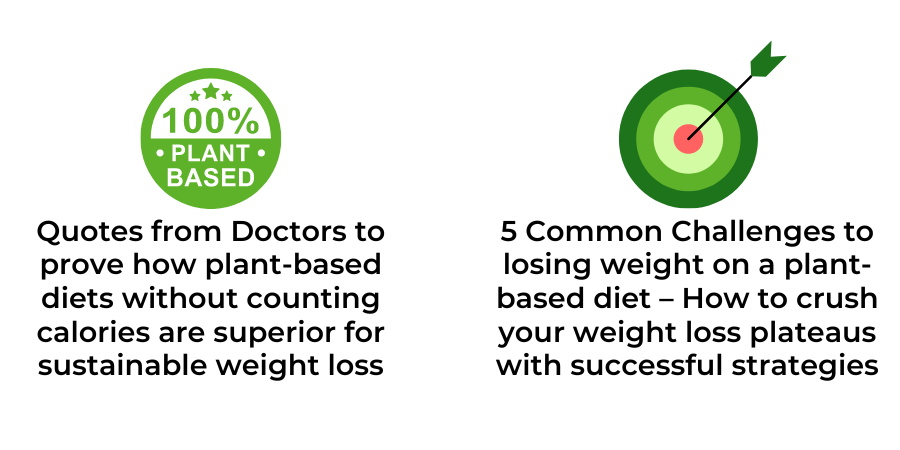
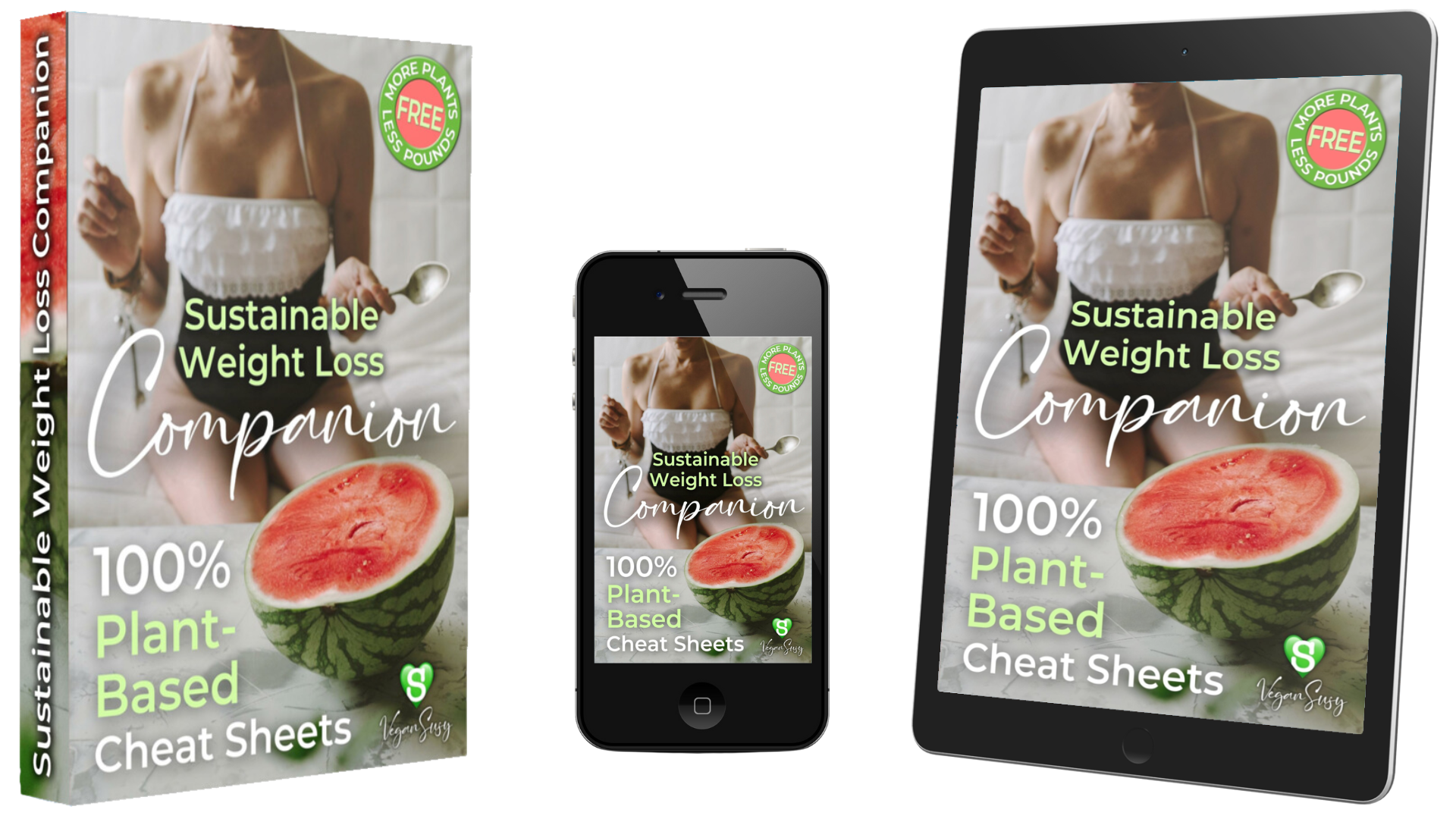
🍉 Get Ready to Jump Start Your Fitness Goals AND DISCOVER A HEALTHIER YOU!
🍉 Let's Make Your Fat Loss & Optimum Health Journey a Delicious Success Story!
🍉 Get The FREE Sustainable Weight Loss Companion eBook and CHEAT SHEETS!
More Free Resources
Unlock Your Transformation Today!
© 2025 VeganSusy Ltd. All Rights Reserved

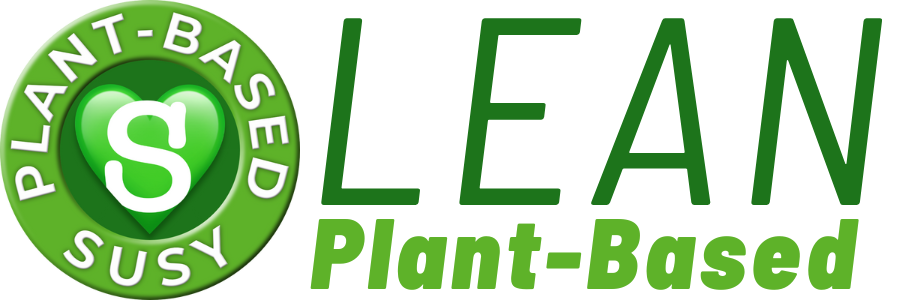
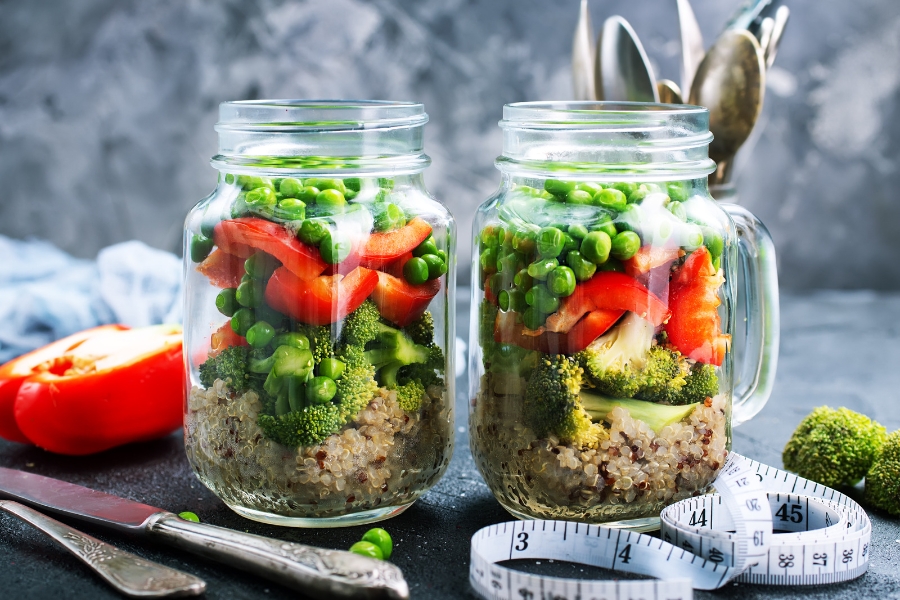
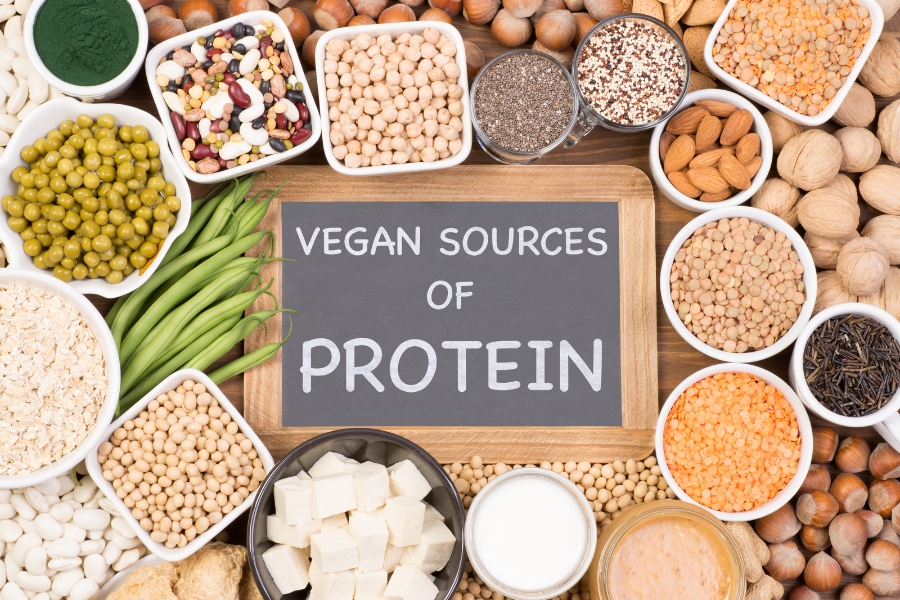

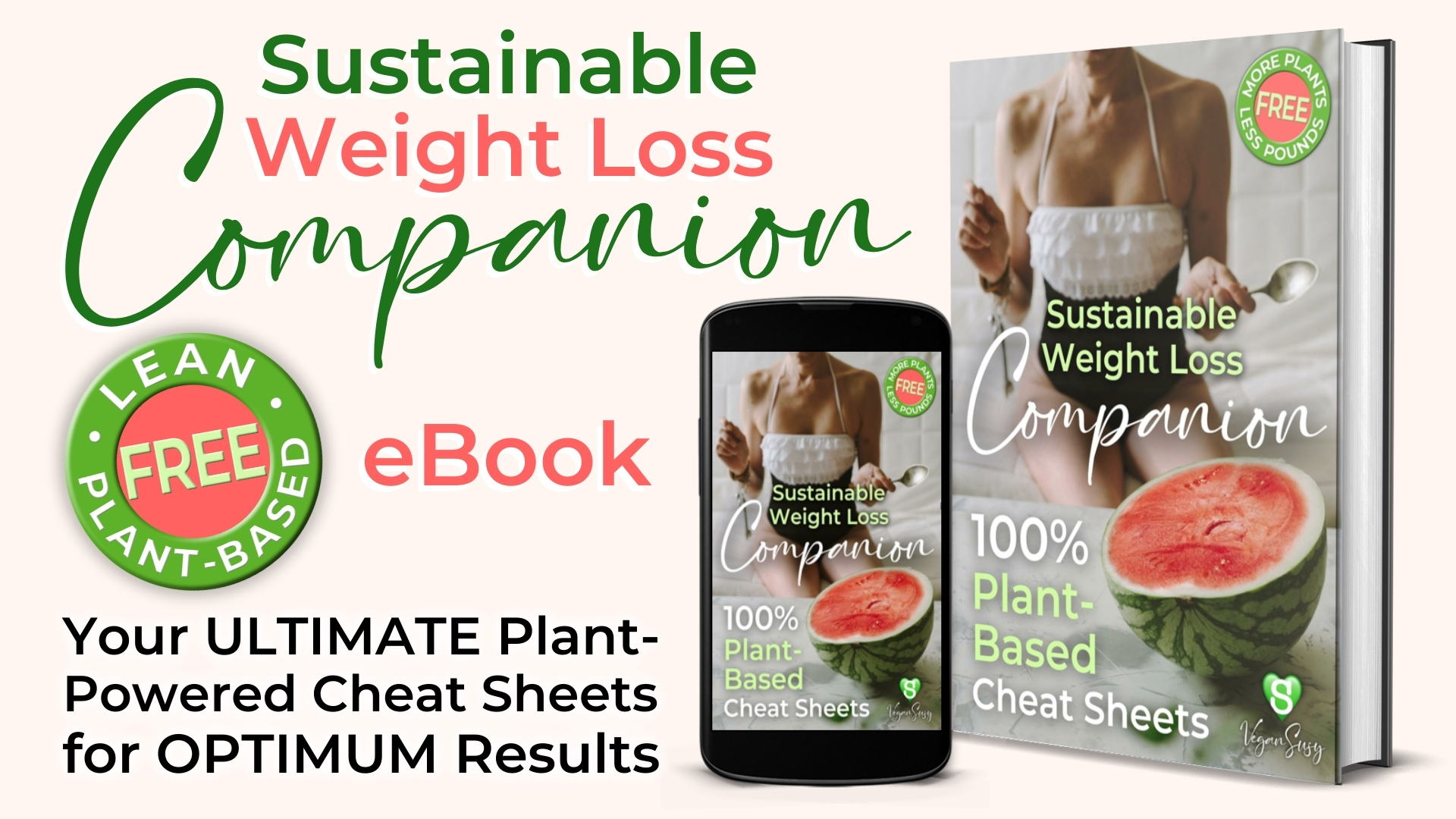




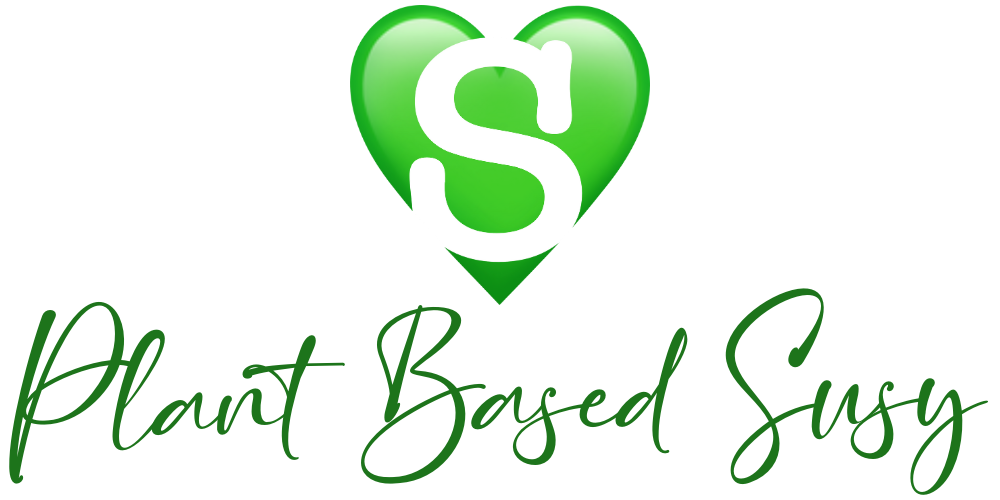
Facebook
Instagram
Youtube
Pinterest